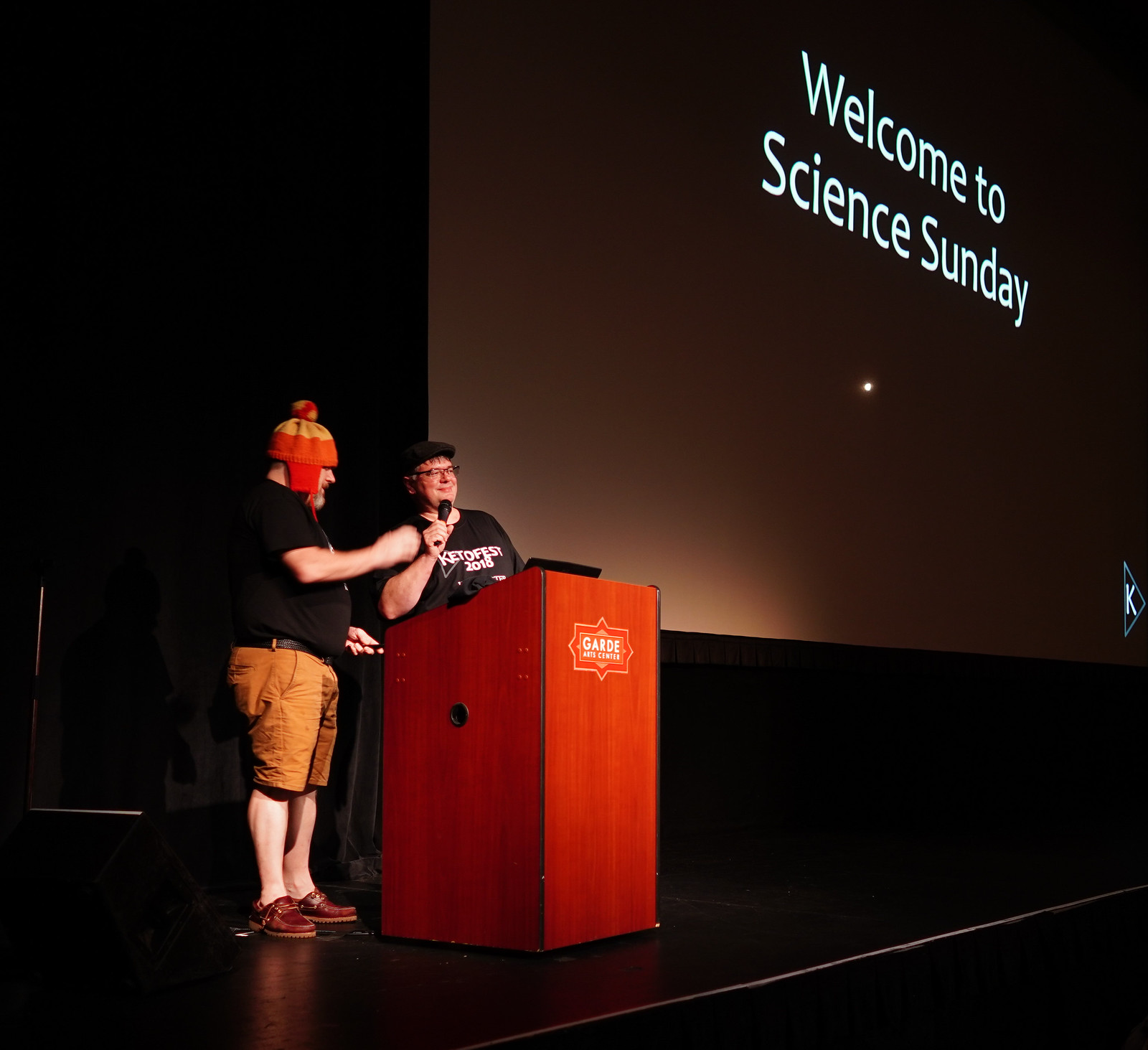
Day 3 (Day 2 for me) of this year’s #Ketofest was about the science, and
- This generation of empowered patients / citizen scientists have a command of the medical literature of the kind I have never seen before, even among physicians
- The professional scientists and physicians are great teachers, too, because they’re passionate about doing the things they came to health care for in the first place
- I loved the intimate “post-chat” sessions that were held in the back of the schoolhouse with each speaker
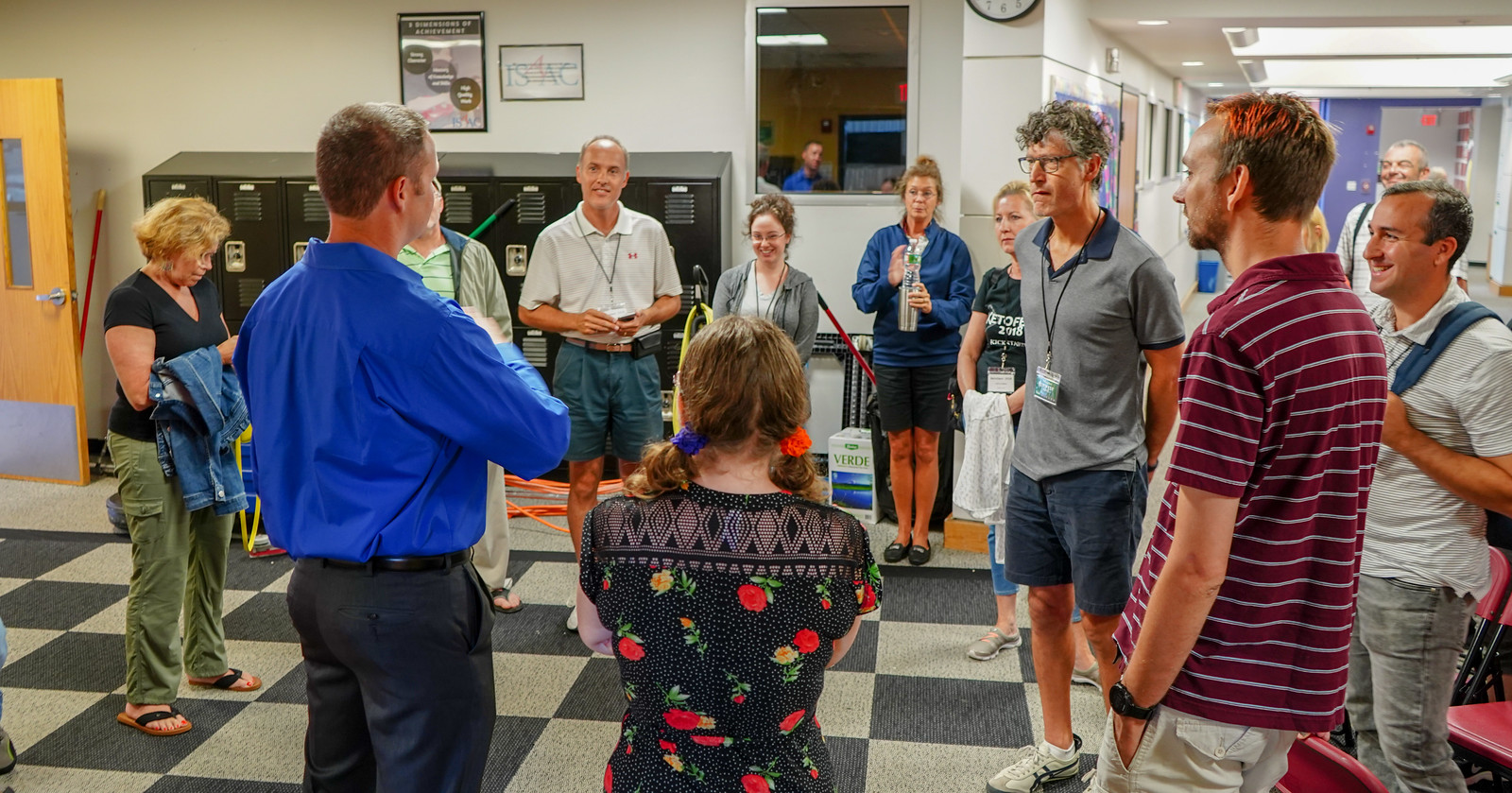
- Have you ever been in a room of people who have taken control of their health and life destiny? I can now say I have, multiple times
That would be me too 10.3 to 5.3 hba1c in 12 months ! #Keto rocks. It's simple my banner shows how !
— Amanda ZZ – Atkins (@AmandaZZ100) July 23, 2018
I’m still disappointed when I hear the stories of people’s interactions with their physicians that are not affirming or in other ways condescending. Whether or not I was there when these events happen is irrelevant – if a person feels it, it’s real.
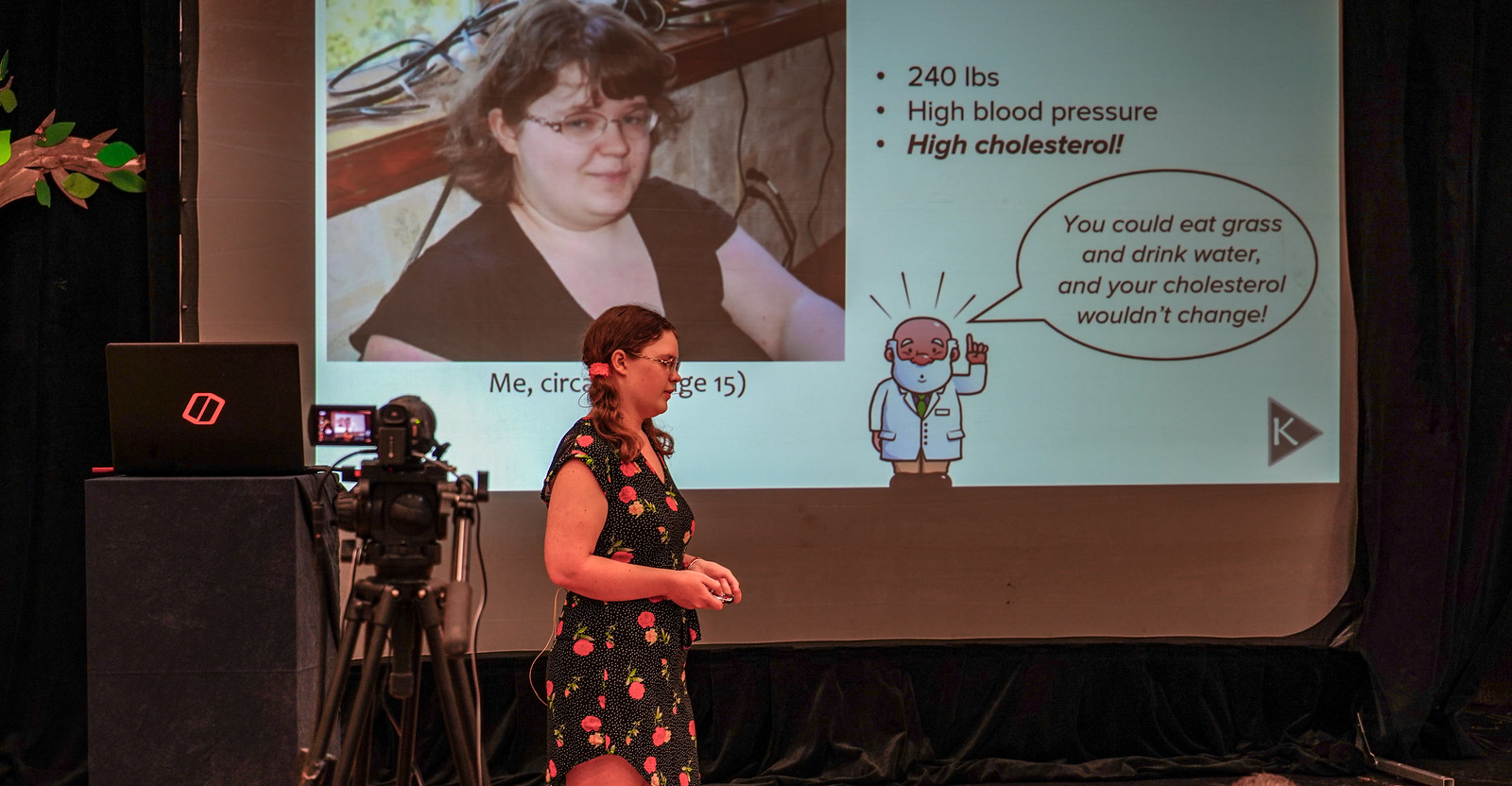
I like to borrow from Washington, DC’s community leader @RubyCoradoDC, who famously said about the LGBTQ people she supports:
Society told them that they were not amazing, I reassure them that they were lied to.Ruby Corado, Washington, DC
& to expand on it here:
for the people whose doctors told them that they were not amazing, that they were not capable of learning how to reverse their illnesses and achieve health, our job is to reassure them that they were lied to.
And, I can report that a lot of reassurance happened 🙂 .
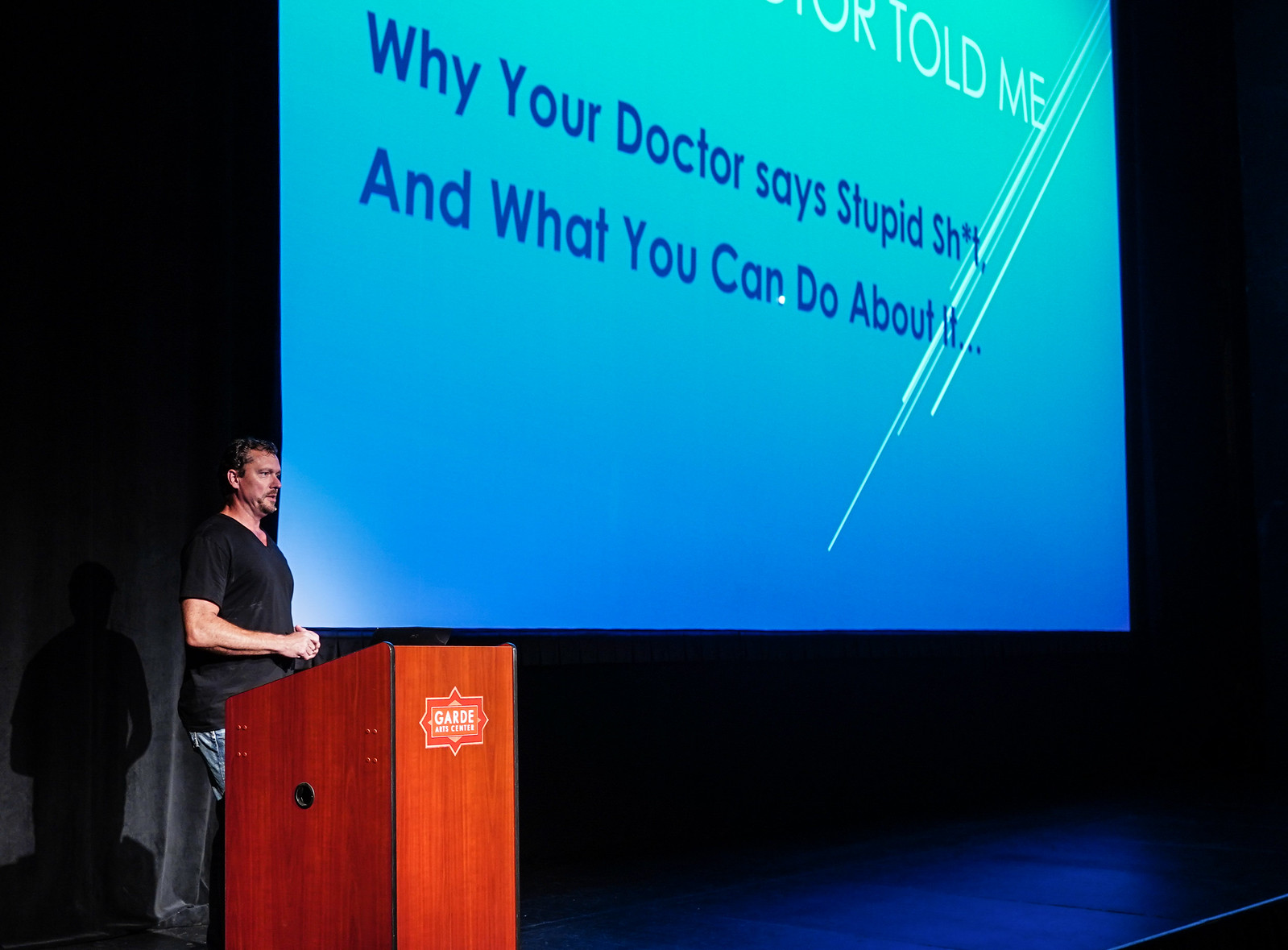
This is not about telling people what to eat
In my experience, this community rejects the idea that people should be told what to eat. Instead, they reject a one-size-fits-everyone approach to nutrition. And, back to data over dogma, we know how well that worked:
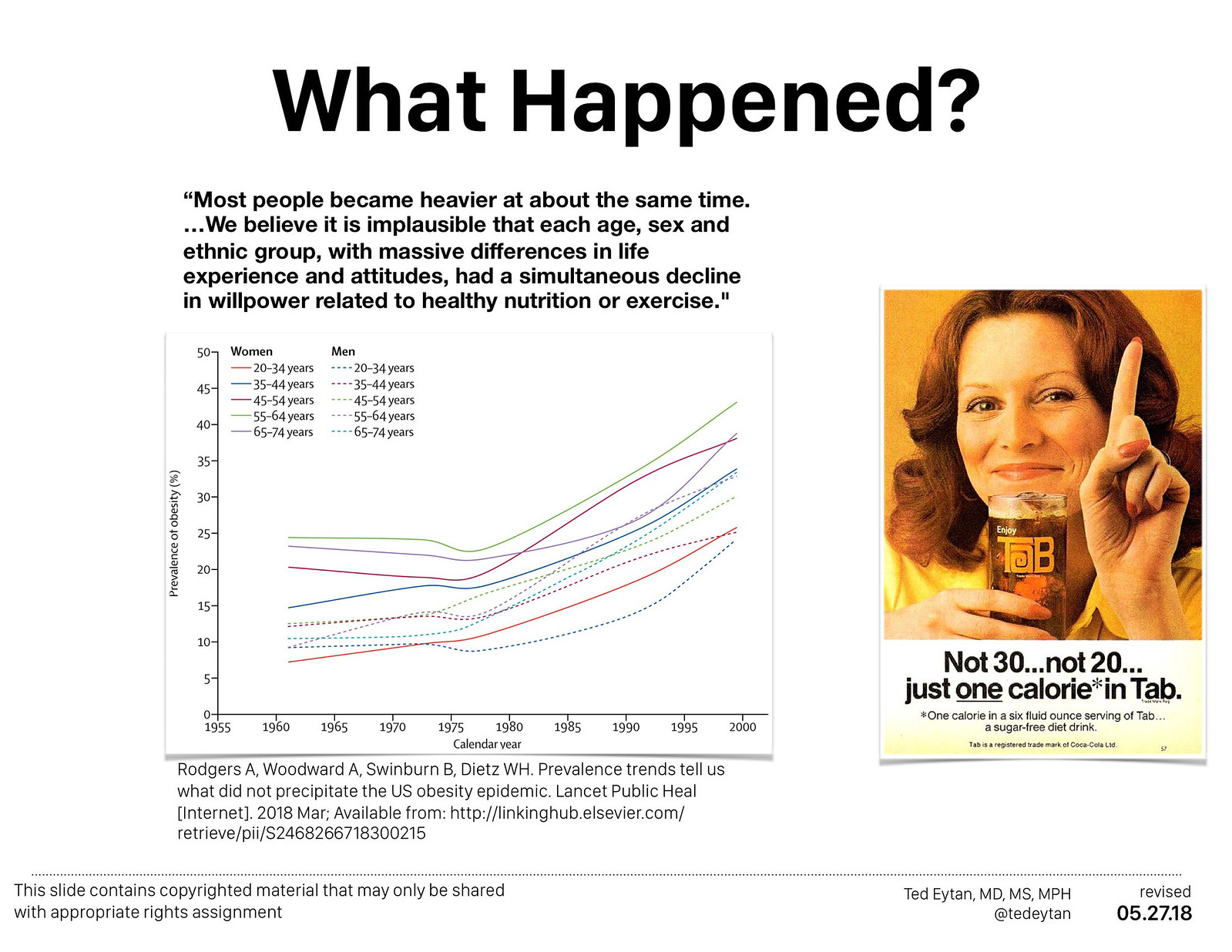
This is not about plant-based or plant-free, it’s about disease-free
There seems to be confusion about the biological source of food recommended. The emphasis is on real, unprocessed food, with a lower insulinogenic potential, shown to be beneficial for people with insulin resistance and glucose metabolism disorders (e.g. diabetes).
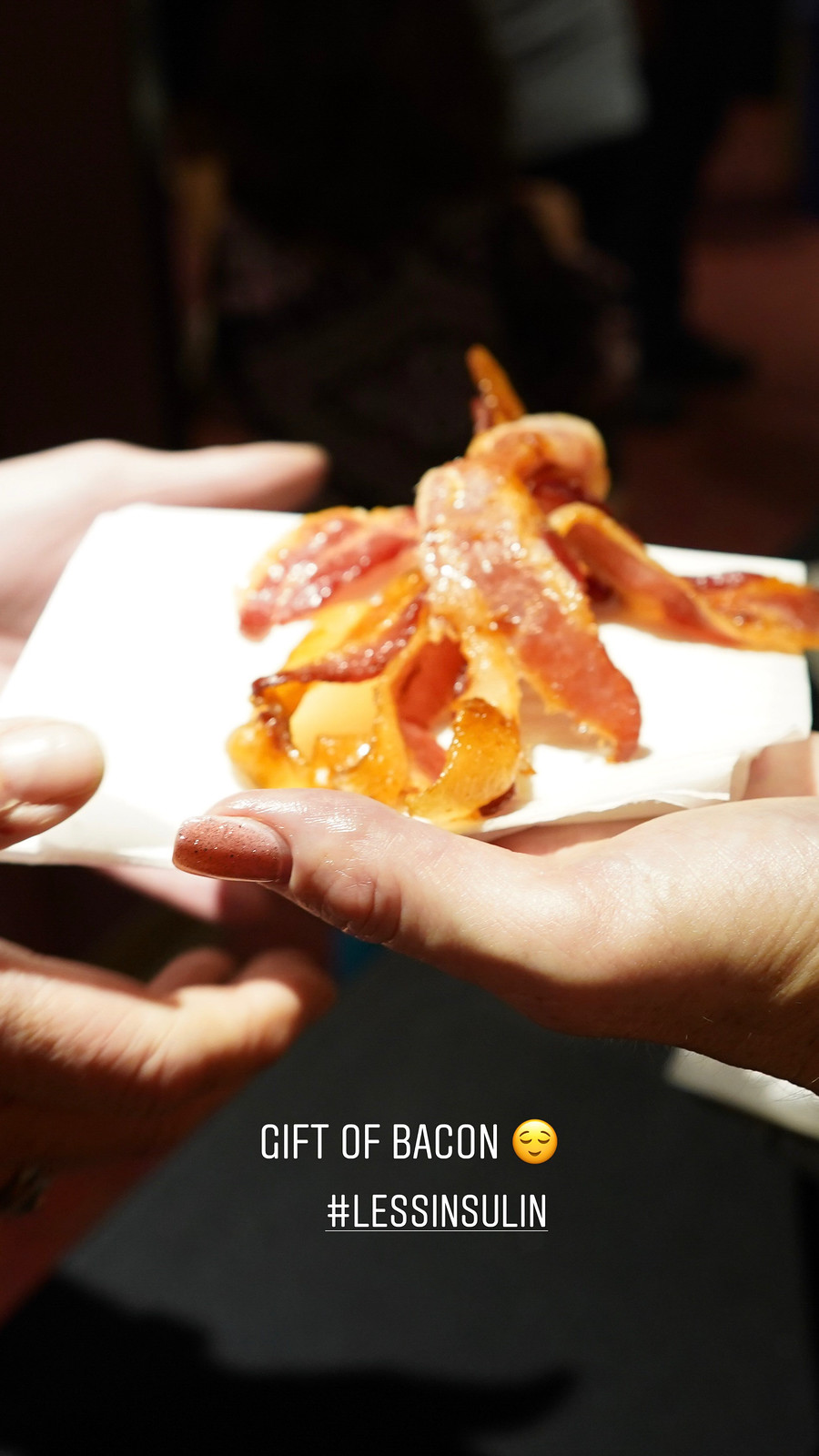
Where I sometimes see a goal of eating a certain type of food in dialogue, I feel this misses the point of what people desire, to achieve their life goals through optimal health.

..or you could just read all the medical literature that I didn't, eliminate your chronic illnesses, then teach other doctors how not to talk to patients like I do. Patients have options, as @siobhan_huggins demonstrates ✌️ #ThisCenturyBestCentury #MetabolicHealth #Ketofest pic.twitter.com/joEFx5c826
— Ted Eytan, MD, MS, MPH (@tedeytan) July 23, 2018
Adding my statement of independence and freedom from conflict
Conflict free is the way to be. I attended for the leadership and learning about health and the future, which more than justifies the expense.
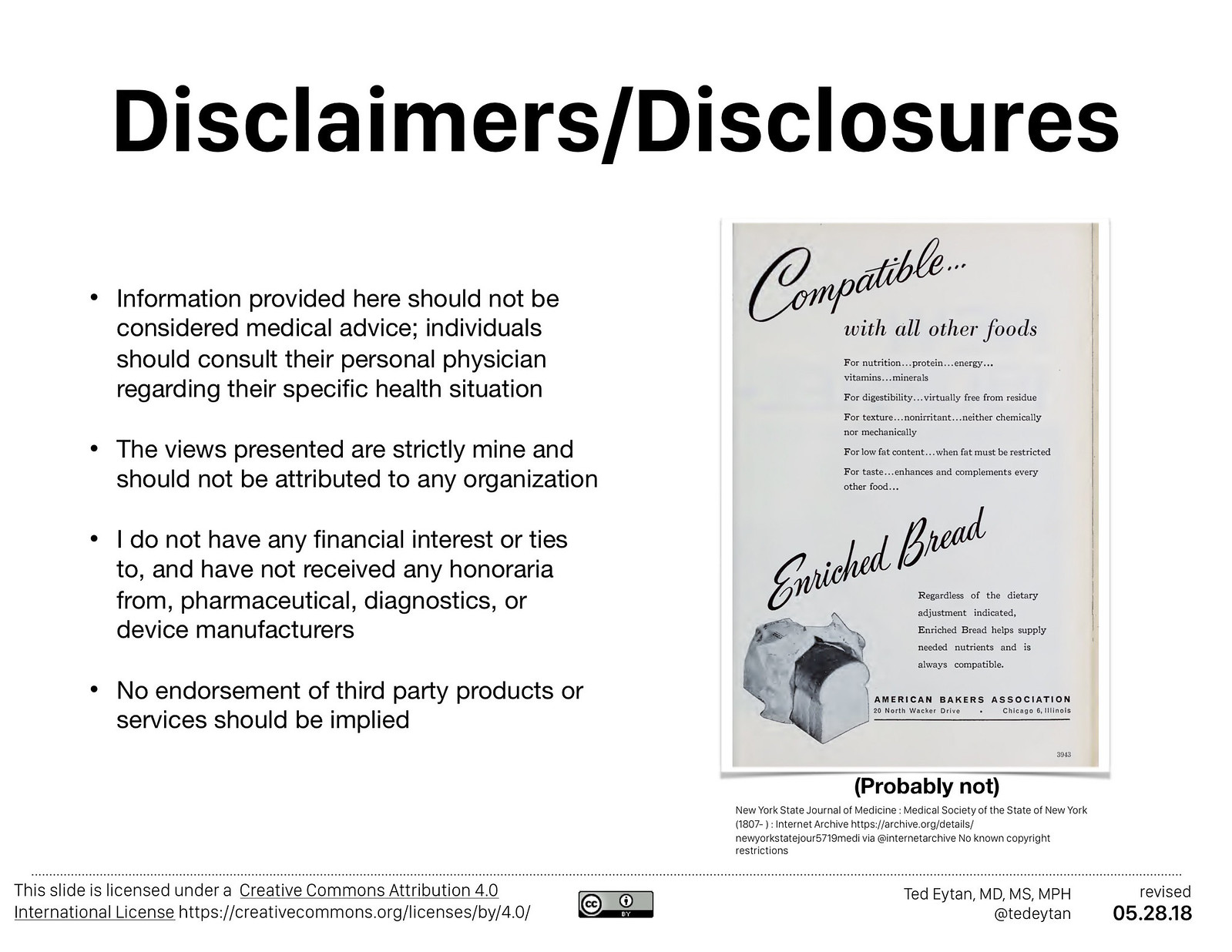
The photos
All are @CreativeCommons licensed, feel free to use and enjoy, with a flashback from March, 2018 that describes how I got here: